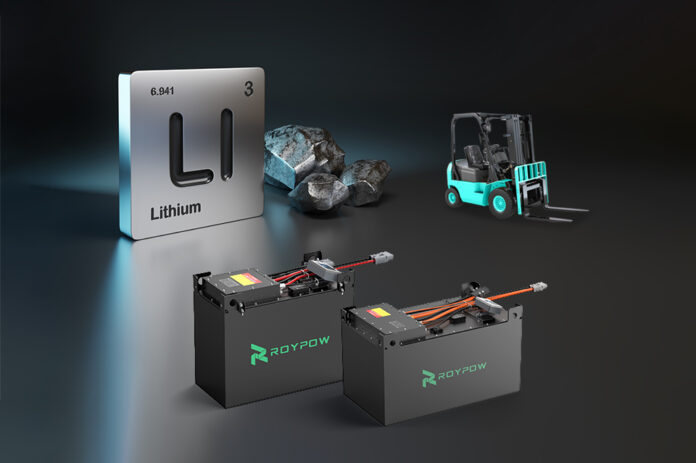In the fast-evolving landscape of warehouse management and industrial logistics, every operational edge counts. From automated systems to AI-driven inventory tracking, companies are leaning into innovation. Yet, one of the most underrated but game-changing upgrades remains in plain sight: switching to a Lithium Forklift Battery.
Forklifts are the backbone of countless operations—from fulfillment centers to retail distribution hubs—and their efficiency is directly tied to the battery that powers them. In this article, we’ll explore how lithium technology is transforming forklift performance, enhancing safety, and helping businesses meet sustainability goals without compromising productivity.
Why It’s Time to Rethink Forklift Battery Technology
The forklift battery is more than just a power source—it’s a strategic tool that influences warehouse throughput, maintenance schedules, and energy consumption. While lead-acid batteries have long been the industry standard, they come with drawbacks such as long charging times, frequent maintenance, and shorter lifespans.
This is where Lithium Forklift Batteries make their mark. They offer faster charging, longer operational life, and no need for messy maintenance tasks. For deeper insight into their capabilities and use cases, visit Lithium Forklift Batteries.
Advantages of Using Lithium Forklift Battery Systems
1. Fast Charging for Continuous Operations
Time is money in any industrial setting. Lithium batteries charge up to eight times faster than traditional lead-acid batteries. In less than two hours, your forklift can be fully recharged and back in action. This makes opportunity charging during breaks a realistic strategy to avoid extended downtime.
2. Significant Increase in Battery Lifespan
A lithium forklift battery typically lasts between 3,000 and 5,000 charge cycles, far outpacing the 1,000–1,500 cycles of lead-acid alternatives. This translates into years of consistent, reliable use with fewer replacements.
3. Zero Maintenance and Less Labor
There’s no need to worry about watering the battery, cleaning acid residue, or performing equalization charges. Lithium batteries are completely maintenance-free, reducing operational costs and freeing up employee time.
4. Enhanced Safety for Workers
With no acid leaks, fumes, or risk of thermal runaway, lithium forklift batteries are far safer for your team. Most models also come equipped with a Battery Management System (BMS) that monitors voltage, temperature, and overall performance in real-time.
5. Lightweight and Efficient Design
Lithium-ion technology is lighter, allowing forklifts to move more efficiently. The energy density is higher, meaning more power in a smaller package, which improves both performance and maneuverability.
Long-Tail Keyword Applications of Lithium Forklift Batteries
In addition to their core strengths, lithium forklift batteries also shine in specific settings. Here are examples of where long tail search terms come into play naturally:
Energy-Efficient Batteries for Cold Storage Forklifts
Cold chain logistics demand consistent performance in sub-zero conditions. Lithium batteries outperform others in cold storage forklift applications, maintaining charge and output levels even in freezing environments.
Maintenance-Free Battery Options for Distribution Centers
Large distribution centers benefit from maintenance-free forklift battery solutions that reduce overhead and increase throughput.
High-Performance Power for Electric Warehouse Vehicles
For operations using electric pallet jacks or narrow aisle trucks, lithium batteries provide long-lasting energy solutions for warehouse forklifts, especially during multi-shift use.
Comparing Lithium vs. Lead-Acid Forklift Batteries
| Feature | Lithium Forklift Battery | Lead-Acid Battery |
|---|---|---|
| Charge Time | 1–2 hours | 8–10 hours |
| Maintenance | None | Frequent (watering, cleaning) |
| Battery Life | 3,000–5,000 cycles | 1,000–1,500 cycles |
| Energy Efficiency | 95%+ | Around 80% |
| Safety | High (BMS-controlled) | Moderate (acid risks) |
| Eco-Friendliness | Very Low Environmental Impact | High Environmental Impact |
| Cost Over Time | Lower Total Cost of Ownership | Higher Due to Replacements |
Industry Use Cases for Lithium Forklift Batteries
E-Commerce Warehouses
With constant demand and minimal downtime requirements, e-commerce warehouses benefit greatly from long cycle life lithium forklift batteries.
Grocery and Retail Distribution
Uninterrupted uptime is crucial for the delivery of perishable items. The quick-charging capabilities of lithium batteries ensure that electric forklifts are always ready to go.
Manufacturing Facilities
From raw material handling to assembly line support, industrial-grade lithium-ion batteries provide stable power in demanding environments.
Environmental and Economic Benefits
Switching to lithium not only improves performance but also contributes to sustainability initiatives. These batteries produce no emissions, contain no toxic substances, and can often be recycled or refurbished, making them a responsible environmental choice.
From a financial standpoint, companies report up to 30% reduction in total battery-related expenses over the battery lifecycle. That includes savings on electricity, maintenance, replacements, and labor costs.
FAQs About Lithium Forklift Battery Technology
Q1: Are lithium forklift batteries compatible with all electric forklifts?
Many lithium batteries are designed to be plug-and-play, but it’s important to check voltage, capacity, and dimensions. Some older forklift models may require minor modifications or adapter kits.
Q2: How often do lithium batteries need to be replaced?
With proper use, lithium batteries can last up to 10 years or more depending on operating conditions and charge cycles.
Q3: Do lithium forklift batteries require special chargers?
Yes. Using a charger designed for lithium batteries ensures optimal charging speed, battery health, and safety.
Q4: Can I use lithium batteries in cold storage facilities?
Absolutely. Lithium batteries perform well in cold conditions and are ideal for refrigerated warehouses and freezers.
Q5: Are lithium batteries more expensive than lead-acid?
The initial cost is higher, but the long-term savings on energy, maintenance, and replacements make them more economical over time.
Final Thoughts
The decision to switch to a Lithium Forklift Battery is more than an upgrade—it’s a strategic investment in performance, safety, and sustainability. With zero maintenance, faster charging, and longer lifespan, lithium technology is revolutionizing material handling across industries.
Whether you’re running a large-scale distribution center or a growing e-commerce warehouse, making the move to lithium ensures your operations are ready for the challenges of tomorrow—efficiently, sustainably, and cost-effectively.
